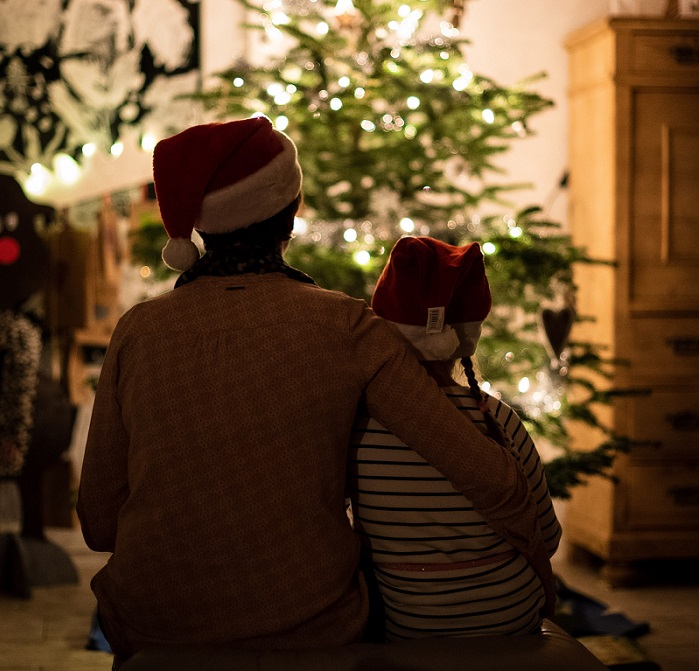Grief during the holidays is tough enough.
Now, let’s pile on a pandemic for the past year, and you have an even more difficult holiday season.
Being isolated and disconnected from our usual support systems has been a great hardship for many—most certainly for those who have lost a loved one. As the holidays approach, those who are grieving find themselves further burdened by even more unknowns.
Here are some suggestions and perspectives to consider for this holiday season if you are grieving or if you know someone who is grieving.
Thanksgiving in a box
If you can’t get together with loved ones because you are not traveling or they are not traveling, put together a “Thanksgiving in a box” or “Christmas in a box” or “Chanukah in a box” or “Kwanza in a box” or “(insert your holiday) in a box.” Let this serve as a sort of care package with more than just gifts. Include things like games, puzzles, poems, books, sweets, and other things that you may have shared if you were together.
Easy meals
If you choose to be alone this holiday (which is perfectly fine), opt for a TV dinner or preprepared meal. Many are tasty and include the traditional holiday foods. This also reduces stress in prep and cleanup. Or have your meal delivered. So many stores and restaurants are increasing their deliveries and offering yummy options for the holidays.
Forgo the “have-tos”
Often, the holidays are propelled by the traditions we have, which in and of themselves are not bad. However, if you don’t feel like putting up a tree or lights, or making certain foods, even though you have done that for years with your deceased family member, there is no obligation to do so. Sometimes other family members may be challenged by this; kids may want the traditions to be the same (even if they aren’t going to be around this year). The only obligation you have is to yourself. Do what you want to do this year.
Listen to your wants
If you want a smaller scale (or larger scale) decorated home this year, that’s fine. One woman I know vowed not to have any decorations this year. She and her deceased husband normally put out lots of decorations, but she didn’t have the energy for that now. However, when she found herself at a local big-box store, she was inspired to buy lights. She heard within herself, “Bring light in this year.” At another store, she was drawn to a small living tree, which she plans to plant in her garden after the holiday. She listened to herself. Even though she had thought she wasn’t going to decorate at all, that inner voice offered something different and something meaningful for her this year.
Conserve your energy
What can you make happen with the energy, time, and resources you have? And what is just not possible? The holidays often compel us to extend ourselves beyond our means, both financially and energetically. This could fit into the “have-tos” section as well. Gifts, especially, are not the purpose of the holidays—connection is. If you don’t have the energy and time, ask yourself what matters to you now and how can you do what matters with what you have? This is a question many who are grieving ask daily: What matters to me now?
Focus on the long-term
This year, connecting and being together means something different. If we are not with the people we want to be with now because we don’t live together, it is advised to remain separated. Especially for those who are older or already compromised in some way, don’t risk the unknown and long-term effects of this illness for short-term experience. The most serious long-term effects are hospitalization and death. Conserve your energy and time by connecting virtually. If you live in a warmer climate, you may be able to gather outside. Again, take the proper precautions. Remember that in the long-term, we will be able to be together again. Someone said, “A large gathering this holiday is not worth a small funeral later.”
Allow yourself to change your mind
Even if you want to do something with others, it’s okay to change your mind, even at the last minute. It is helpful to prepare others for this too. Tell them, “I need to warn you that I may need to change my mind, depending on how I feel.” People who know you and know your situation will understand. This also applies to events you may sign up for online. When you register for an event, check the refund policies.
Sit this one out
Some who are grieving don’t want to be a part of anything related to the holidays this year. This is just fine. While some people (even some close to you) may feel this is not a good thing, you have to decide what is right for you. Sitting out this holiday doesn’t mean you will never celebrate again. It just means for right now, you need to be with you, figure out what you want, watch or listen to what you want, eat the food you want, cry when you need, sleep when you need, and talk to who you want to (or not). Remember, you are the boss of you.
Celebrate when you can
For some, celebrating on the actual holiday is not possible or even desired. Some folks gather (even virtually) before the holiday or after it. One person said they celebrate the holidays in the summer when everyone can make it. It’s too late for that this year, but maybe you’ll choose that next year, after we, hopefully, can gather again. Getting together in the summer will allow for an even sweeter celebration.
Pulling inward
As we go into the darkest time of the year, our natural inclination is to hibernate. For those who are grieving, this can be a greater pull. With the holidays being so different than they ever have been, it seems like we have an even better reason to pull inward. We can shift our focus from outside ourselves to within ourselves, from doing to being—being with ourselves, being with others (mostly virtually), and being with what is, right now.
Be in the present
This year, we have experienced how things can change day-to-day. Being present for the experiences right now will support you in your grief. Being present to how you feel can help you to make choices about what you want and how you want your life to be. Worrying about what is out of your control expends energy that could otherwise be used for what you can control. Being present allows you to ask, “What is in my control now?” When we discover what is in our control, we find we have more choices. When we focus on what is out of our control, we find fewer choices and feel more helpless.
If you need additional assistance as you are grieving in this time, there are many folks who can help and support you. Local hospice organizations often have resources, especially during the holidays. There are many websites that offer written, video, and even live/Zoom events with information and support. If you find yourself struggling and need immediate assistance, call 911 or your local emergency mental health services for support.
~











Read 2 comments and reply